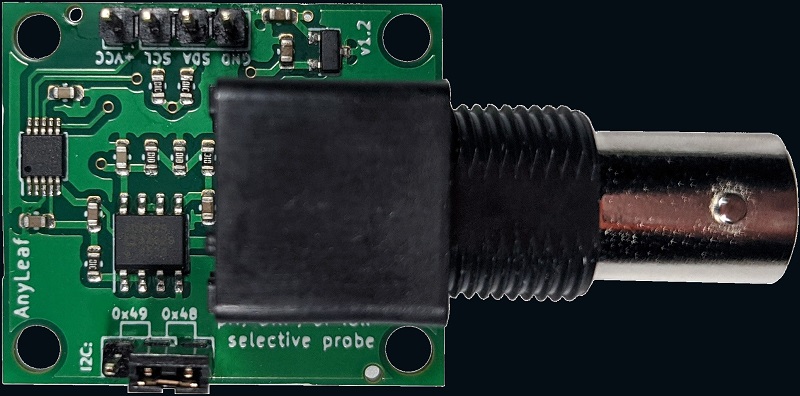
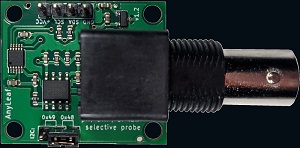
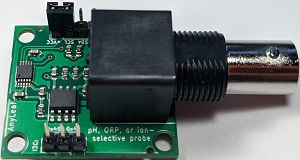
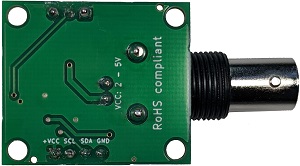
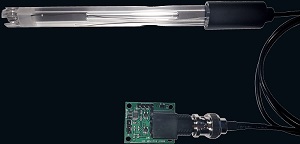

Available with lab-grade pH probe. Connects directly to your device (Arduino, Raspberry Pi, or embedded) - no other parts required. Our open-source software makes measuring fast and easy.
Includes temperature compensation, with built in sensor. Can be used with Oxidation Reduction Potential(ORP) , and other ion-selective electrodes. (Nitrate, Potassium, etc) probes.
This module can be used with any probe with a BNC connection. The I2C interface can communicate with nearly any microcontroller.
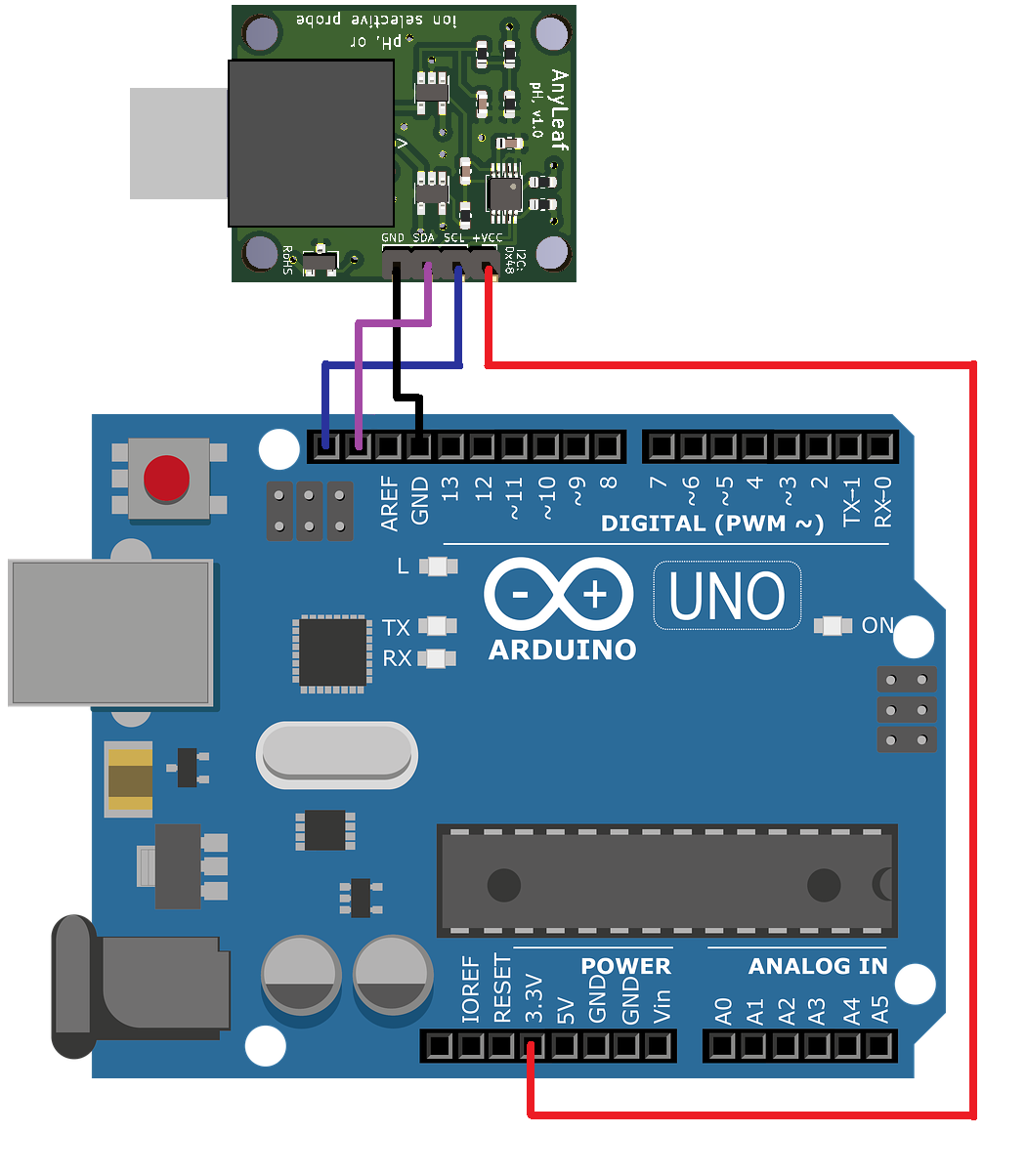
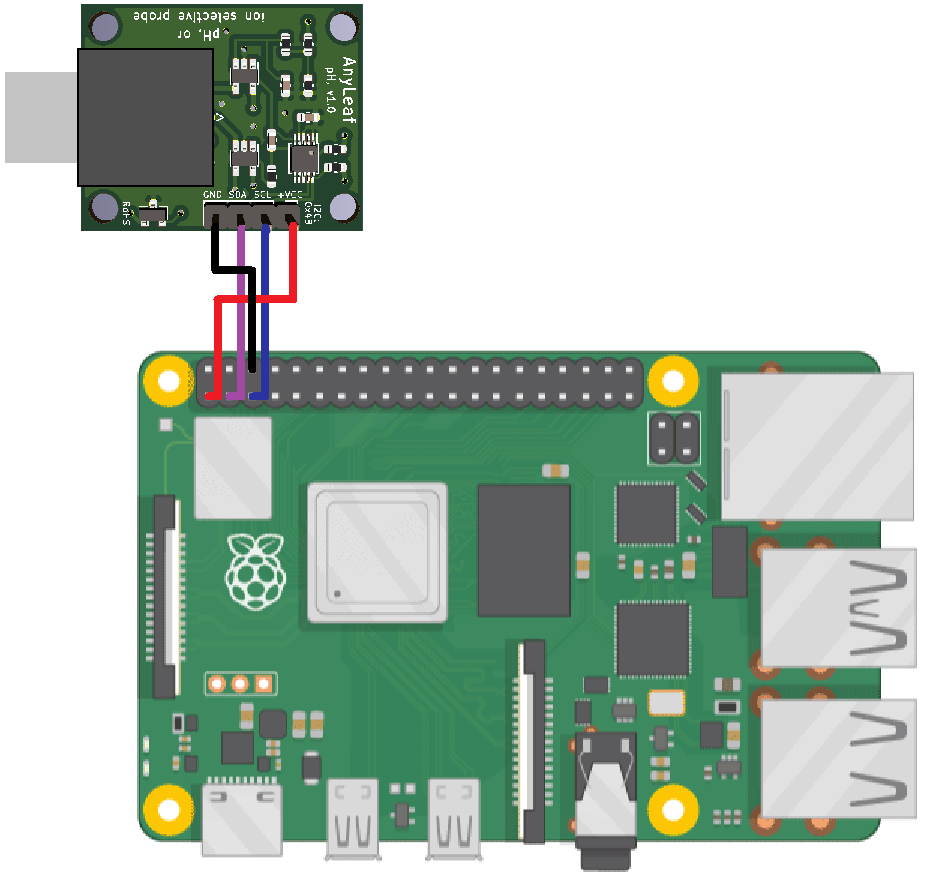
Arduino: From the Arduino IDE: Sketch → Include Library → Manage Libraries → select Anyleaf
C++: Download Anyleaf.cpp and Anyleaf.h from the C++ Github link below, and place them in your project directory
Python: Run sudo apt install python3-scipy, then pip3 install anyleaf. Ensure I2C is enabled.
#include <Anyleaf.h> PhSensor ph_sensor; void setup(void) { Serial.begin(9600); ph_sensor = PhSensor(); ph_sensor.calibrate_all( CalPt(0., 7., 25.), CalPt(0.18, 4., 25.) ); } void loop(void) { Serial.print("pH: "); Serial.println(ph_sensor.read()); delay(1000); }
import time import board import busio from anyleaf import PhSensor, CalPt, OnBoard def main(): i2c = busio.I2C(board.SCL, board.SDA) delay = 1 # Time between measurements, in seconds phSensor = PhSensor(i2c, delay) phSensor.calibrate_all( CalPt(0., 7., 25.), CalPt(0.18, 4., 25.) ) while True: print(f"pH: {phSensor.read(OnBoard())}") time.sleep(delay) if __name__ == "__main__": main()
Regular calibration is required for accurate measurements. The official drivers support 2 or 3 point calibration. 2 point is sufficient for hydroponics, aquarium, or brewing use. 3 points, or 2 carefully chosen points are required for sufficient accuracy for lab use.
Compatible with the Mycodo Environmental Monitoring and Regulation System. If you're using a Raspberry Pi, this is a simple way to get it running with a GUI, charts, and logging. Follow the installation instructions on that page, and add AnyLeaf pH as an input.
Also available on Tindie.